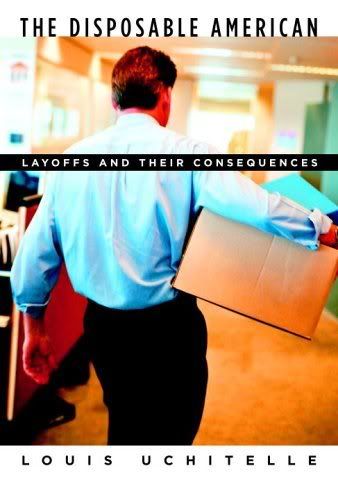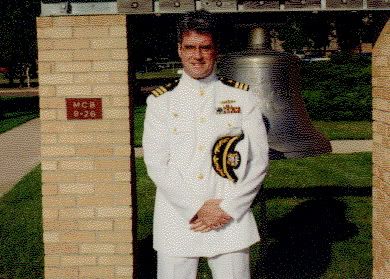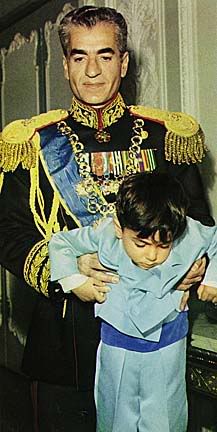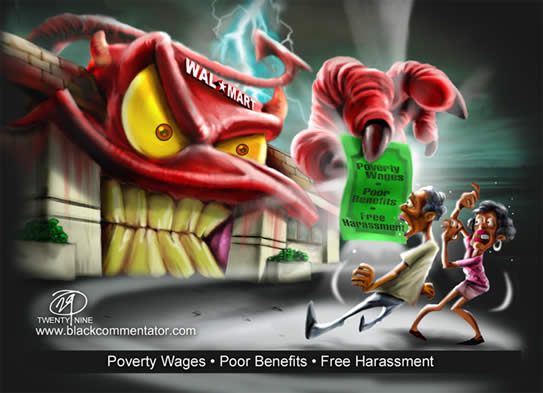The Future of Employment: Where Are We Going?

As a teacher one of the things you want to be able to help your students with, and one of the things they're hoping that adults can in fact help them with, has to do with what they should do for employment, and why it is that what they're doing in school is a step in the right direction for them to in fact become meaningfully employed. An article in Sunday's NY Times by Louis Uchitelle, Retraining Laid-Off Workers, but for What?, would surely give any reasonable person concerned with this issue some pause. The article tells a couple of stories, but the one that made the biggest impression on me focused on what our thinking in this country is regarding jobs. Our running philosophy essentially boils down to if you're well enough educated and you try hard you'll find a good paying job, and if you don't, well somehow that's your fault.
Uchitelle tells about United Airlines aircraft machinists who were laid off. Aircraft machinists are reasonably well-paid, and they represent a section of the job market where those who are in the profession often don't have college degrees. Many machinists go to a trade school, on their own or through their employer, to acquire their skills, or otherwise come into the profession via the military where they've had extensive training before they go to work for an airline. The United machinists were reasonably well-paid, having worked out a top-end $60/hour wage with their 2002 contract with the airline. This, of course, was before United declared bankruptcy.
United's machinists were considered, prior to 1999 anyway, to be very efficient when it came to overhauling and repairing aircraft. The industry norm for a plane overhaul was 22 days and United machinists were doing it in 11, using genuinely original methods and cross-workshop teamwork to significantly reduce turn-around time on aircraft. The United machinists were so good that American West airlines contracted with United to have American West aircraft worked on by the United machinists. All this came to serious crash in the summer of 1999 when the machinists engaged in a work slowdown which in the end prompted United to begin outsourcing its aircraft overhauls to companies that didn't use union labor. United soon discovered that outsourcing was less expensive than in-house maintenance, making it worthwhile to outsource planes even if it took longer to complete the overhauls. The trend towards outsourcing continued when the cost of United's mechanics increased, and an airline considering and finally entering into bankruptcy was looking for ways to save money.
Ok, so a convergence of unfortunate circumstances put the machinists in a bad situation with regard to their long-term employment, with many of them being laid off. But they were well-trained to begin with, and on top of this they were eligible for federally subsidized re-training and job placement.
'The presumption — promoted by economists, educators, business executives and nearly all of the nation's political leaders, Democrats and Republicans alike — holds that in America's vibrant and flexible economy there is work, at good pay, for the educated and skilled. The unemployed need only to get themselves educated and skilled and the work will materialize. Education and training create the jobs, according to this way of thinking. Or, put another way, an appropriate job at decent pay materializes for every trained or educated worker.
"If the workers were already trained, as the mechanics certainly were, then what they needed was additional training and counseling as a transition into well-paying, unfilled jobs in other industries. If the transition failed to function as advertised, well, the accepted wisdom suggested that it was the fault of the workers themselves. Their failure to land good jobs was due to personality defects or a resistance to acquiring new skills or a reluctance to move where the good jobs were.
"That was the myth. It evaporated in practice for the aircraft mechanics, whose hourly pay ranged up to $31. Not enough job openings exist at $31 an hour
— or at $16 an hour, for that matter — to meet the demand for them. Jobs don't
just materialize at cost-conscious companies to absorb all the qualified people
who want them."
But surely with some additional training and education we can tweak that mechanic into something professionally useful and well-paid, right? Well, no, not really:
"Saying that the country should solve the skills shortage through education and training became part of nearly every politician's stump speech, an innocuous way to address the politics of unemployment without strengthening either the bargaining leverage of workers or the federal government's role in bolstering labor markets.
"But training for what? The reality, as the aircraft mechanics discovered, is painfully different from the reigning wisdom. Rather than having a shortage of
skills, millions of American workers have more skills than their jobs require. That is particularly true of college-educated people, who make up 30 percent of the population today, up from 10 percent in the 1960's. They often find themselves working in sales or as office administrators, or taking jobs in hotels and restaurants, or becoming carpenters, flight attendants and word processors."
I'd throw working at Wal-Mart or the local national supermarket chain of your choice (I suppose these are the "sales" jobs that Uchitelle's referring to, this makes it a bit more stark) as also topping the job opportunities list for those once in relatively high-paying jobs who now need jobs. And are there really jobs out there to be plucked from the tree of employment, ones that will make students, or anyone really desirous to work, adequately employed? Well that's not clear, and the evidence would suggest that the answer is no, there's not:
The Labor Department's Bureau of Labor Statistics offers a rough estimate of the imbalance in the demand for jobs as opposed to the supply. Each month since December 2000, it has surveyed the number of job vacancies across the country and compared it with the number of unemployed job seekers. On average, there were 2.6 job seekers for every job opening over the first 41 months of the survey. That ratio would have been even higher, according to the bureau, if the calculation had included the millions of people who stopped looking for work
because they did not believe that they could get decent jobs.
So the demand for jobs is considerably greater than the supply, and the supply is not what the reigning theory says it is. Most of the unfilled jobs pay low wages and require relatively little skill, often less than the jobholder has. From the spring of 2003 to the spring of 2004, for example, more than 55 percent of the hiring was at wages of $13.25 an hour or less: hotel and restaurant workers, health care employees, temporary replacements and the like.
That trend is likely to continue. Seven of the 10 occupations expected to grow the fastest from 2002 through 2012, according to the Labor Department, pay less than $13.25 an hour, on average: retail salesclerks, customer service representatives, food service workers, cashiers, janitors, nurse's aides and hospital orderlies.
So if you're able to find a job that pays decently and you're able to keep it, good on you. But if you lose it you may find yourself out there working in some flavor of the service industry. But that's not what we sell ourselves, and that's certainly not what we sell our students. In point of fact, as near as I can tell, the whole issue of what students should do with their education and where they should go for work is something of a black box - in high school we're focused on preparing our charges for college, which begs the question as to what the 50% or better who either don't go to college or otherwise don't finish college should be doing, and whether they might have been better served with some realistic job counseling/training while they were a junior or senior in high school. But heck, even if they walk out the door with a good job in hand, as many an airline mechanic surely thought they had, they could well enough still face the possibility of losing that job and then find themselves vying for what's left out with everyone else out there.
I'm told, and surely read enough about it, that we're not training our students sufficiently in the math and sciences. Being a chemistry teacher I can attest to that with the paucity of infrastructure and pedagogical investment being a real problem. But what, exactly, are we training these kids for? Some know they want to be doctors, engineers, physical therapists, or nurses, so they're not so hard to get on the right track. But what are the other kids, the vast majority as it stands, supposed to be looking forward to in the future? How are we supposed to prepare out students for jobs in a realistic fashion when life-long employment no longer is a reasonable expectation, outsourcing, overseas and here in the U.S., is taking jobs left and right, and the protection that our parents once may have enjoyed from unions has withered away to the point where non-union jobs are the ones most directly in competition to union ones, as the United aircraft mechanics discovered to their dismay? I think these are important questions, and in all honesty I don't see much being done to address them, but I know that politicians love NCLB and think we should be doing a better job at teaching math and science, for what specific purpose it seems we all just somehow know without really being sure.







